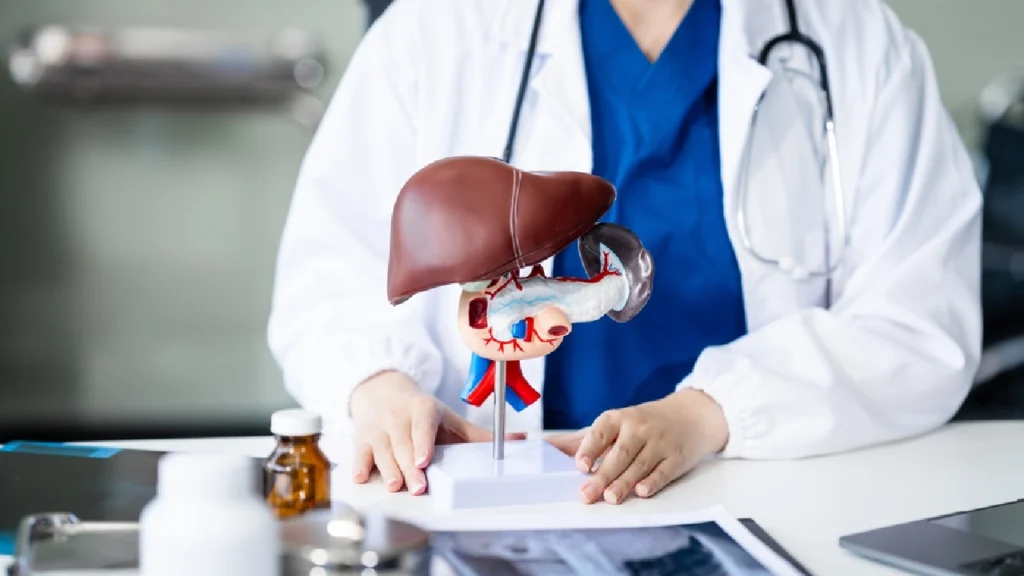Liver Transplant surgery cost in India
A Liver Transplant is a medical surgery where the damaged liver of an individual is replaced with a healthy liver of either a living or a deceased person. The liver is an internal organ that is very important for the body’s metabolic function and makes proteins that are very essential for blood clotting. Liver Transplant can cure acute liver damage but, it is mostly done to treat chronic liver damage. Chronic liver damage is caused by liver cirrhosis, alcoholic liver disease, fatty liver, and infection by hepatitis B and C, etc.

Here is a detailed breakdown of the Liver Transplant surgery cost in India in US Dollars (USD).
Quick Summary: Total Package Cost
- For a Living Donor Transplant (Most Common): $35,000 to $60,000 USD
- For a Deceased Donor (Cadaver) Transplant: $45,000 to $70,000+ USD
This cost is dramatically lower than in Western countries, often just 1/10th to 1/15th of the cost in the United States (where it can exceed $800,000 USD), making India a leading global destination for this life-saving procedure.
Detailed Cost Breakdown in USD
A liver transplant is a complex procedure, and the cost encompasses evaluations for both the recipient and the donor, the surgery itself, and initial post-operative care.
Cost Component | Details | Approximate Cost in USD ($) |
Pre-Transplant Evaluation | Extensive tests for both recipient and donor. Includes advanced imaging (CT/MRI), blood tests, heart and lung evaluations, endoscopies, and multiple specialist consultations. | $3,000 – $6,000 |
Hospitalization & Surgery | The largest cost component. Includes surgeon fees, anesthetist charges, operation theatre (a transplant can take 12-16 hours), ICU stay (1-2 weeks), and hospital room for 3-4 weeks. | $25,000 – $40,000 |
Donor Hepatectomy | The cost for the surgery to remove a portion of the liver from the living donor. This is a major surgery itself. | $6,000 – $10,000 |
Immunosuppressant Medications | Crucial post-surgery drugs. Cost for the initial supply for the first 1-3 months after discharge. | $1,000 – $2,500 |
Other Medications & Consumables | Blood products (donors often require transfusions), antibiotics, specialized drugs, and medical consumables used during the long hospital stay. | $3,000 – $6,000 |
Total Estimated Package (Living Donor) | $38,000 – $64,500 |
Note on Deceased Donor Transplant: If the liver comes from a deceased donor, the cost for organ retrieval, preservation, and transportation is added. This can increase the total package cost by $7,000 to $10,000+, pushing the total towards the higher end of the range.
What Does the “All-Inclusive” Package Typically Cover?
Reputed hospitals offer packages for international patients that generally include:
- All pre-transplant diagnostic tests and consultations for both donor and recipient.
- Hospital stay for both the recipient and the donor.
- All surgical costs, including surgeon and anesthetist fees.
- ICU charges and routine medications during the hospital stay.
- The first supply of immunosuppressants upon discharge.
- Food and nursing care.
What is Usually NOT Included?
It is vital to ask for a detailed, itemized quote. The following are often extra costs:
- Long-term Immunosuppressants: This is a major lifelong expense. These anti-rejection drugs can cost $200 – $500 per month indefinitely.
- Treatment for Complications: Management of rejection, infections, or other surgical complications can significantly increase costs.
- Unmatched Blood Products: If large or special transfusions are needed.
- Travel & Accommodation: Flights, local transport, and hotel stays for the patient and family members for an extended period (often 2-3 months in total).
- Follow-up Tests after Returning Home: Regular blood work and imaging scans in your home country.
Key Factors Influencing the Final Cost
- Hospital’s Reputation and Location: Top-tier hospitals in Delhi, Mumbai, and Chennai (e.g., Apollo, Medanta, Global, Fortis) with established transplant programs command higher fees due to their expertise and success rates.
- Surgeon’s Expertise: The fee of a leading transplant surgeon is a significant part of the cost.
- Patient’s Condition: The cost is higher for patients in critical condition (in the ICU) or with complex complications like renal failure or infections.
- Type of Transplant: Living donor transplants are more scheduled and common. Deceased donor transplants can be more expensive and logistically complex.
- Length of Hospital Stay: Any complications that extend the ICU or hospital stay will increase the cost.
The Process for International Patients
- Medical Visa: Apply for an Indian Medical Visa for the recipient and the living donor. The hospital provides a formal invitation letter.
- Initial Online Consultation: Share all medical reports for a preliminary evaluation and cost estimate.
- In-Person Evaluation: Travel to India for a final, thorough 7-10 day workup for both donor and recipient.
- Legal Authorization: For living donors, an interview with a government authorization committee is mandatory to ensure ethical practices.
- Surgery and Recovery: The transplant is performed. The recipient typically remains in the hospital for 3-4 weeks.
- Post-Discharge Stay: Plan to stay in India for at least 2-3 months post-discharge for close monitoring and follow-up appointments before returning home.
Disclaimer: The prices provided are estimates based on current market rates. The final cost can only be determined after a direct consultation with the hospital’s transplant team based on the specific medical condition of the recipient and the donor. Always request a detailed, written quotation before making any decisions.


